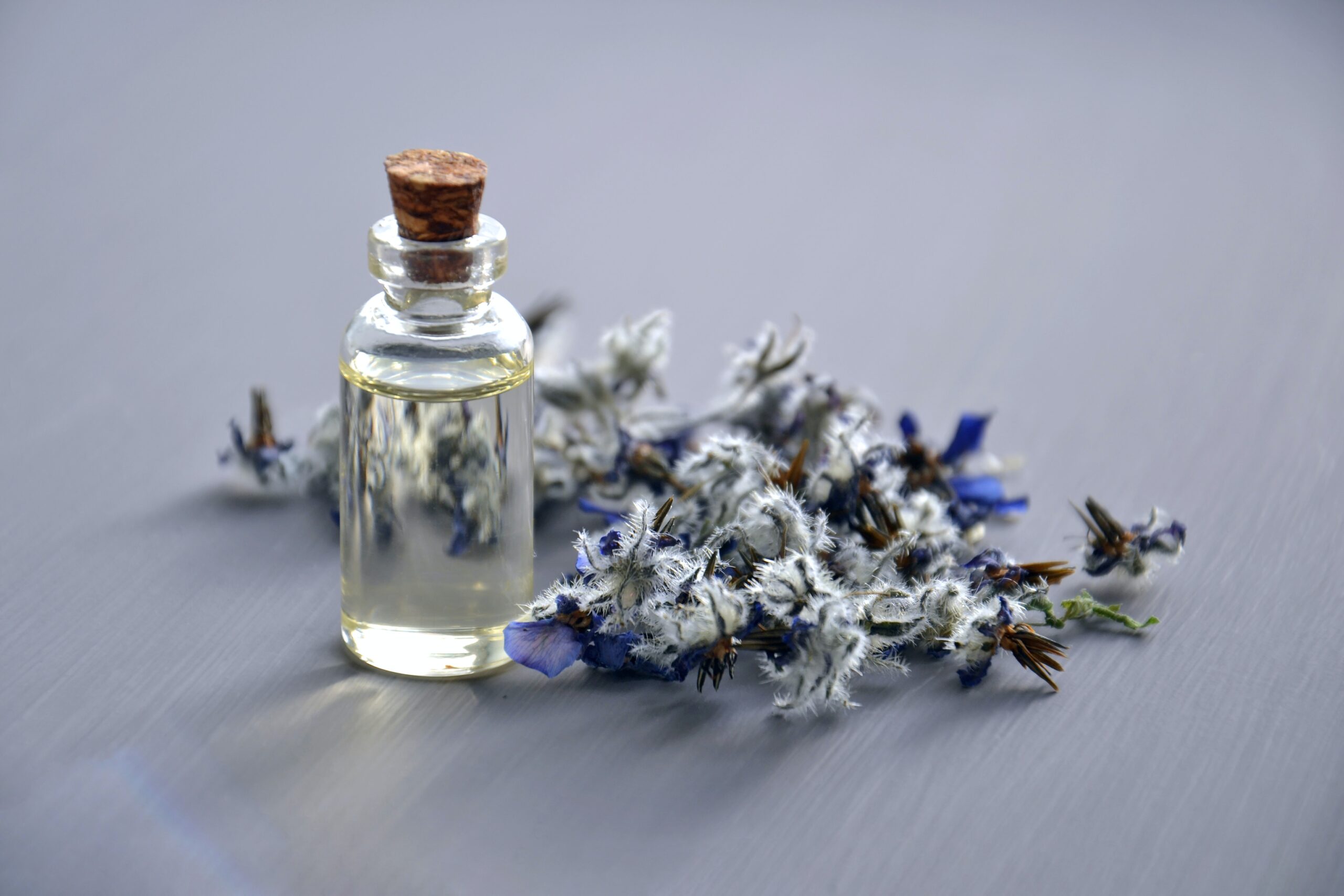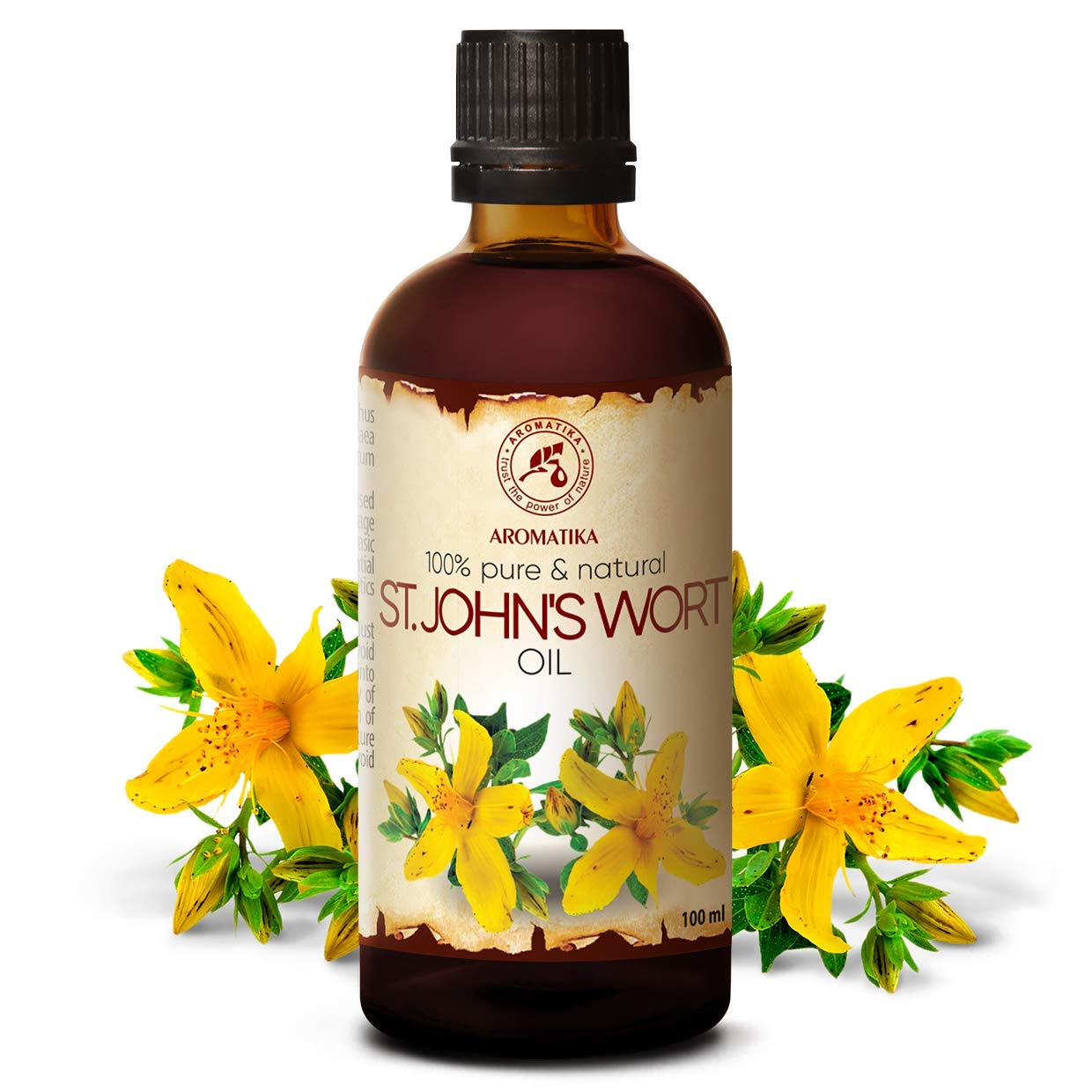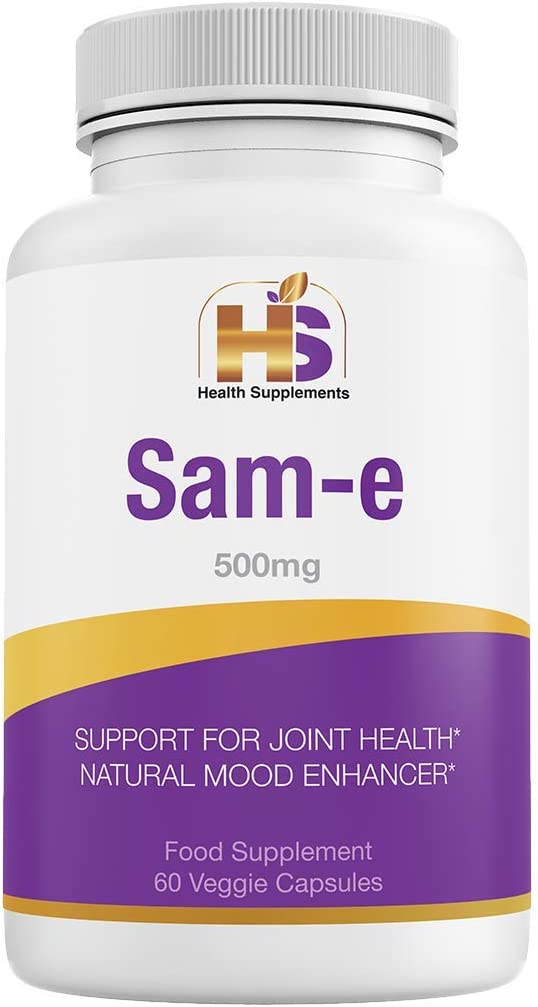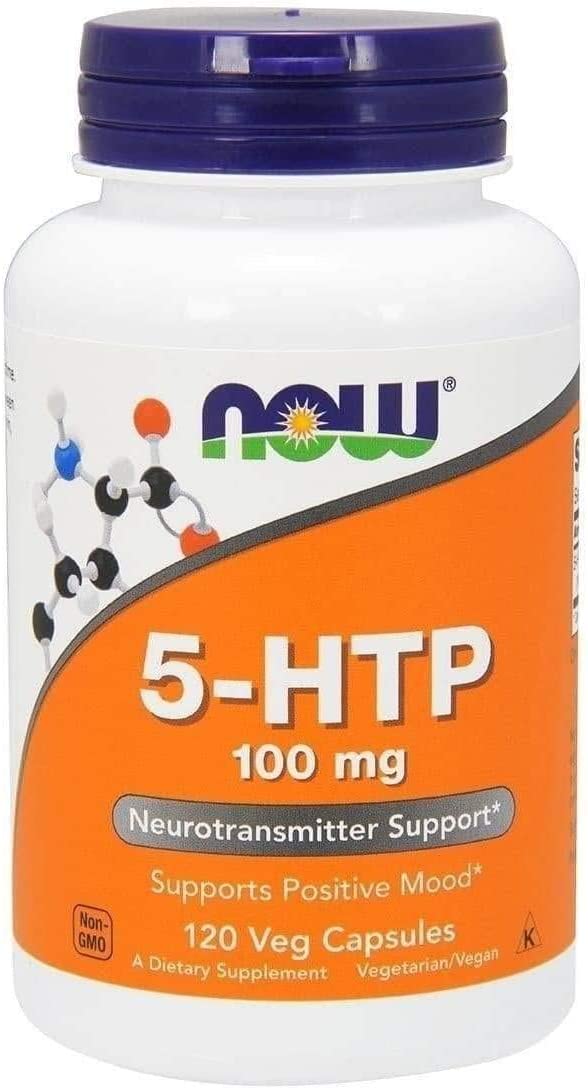Natural Depression Remedies That Work
As someone who has personally struggled with depression, I know firsthand how difficult it can be to find the motivation and energy to take care of yourself, let alone make big changes or tackle big resolutions.
That's why, for me, finding natural depression remedies has been a game-changer. While medication and therapy can be essential for some people, incorporating natural remedies like exercise, a healthy diet, and mindfulness practices into my routine has helped me to better manage my depression and improve my overall well-being.
Within the next few paragraphs Im going to be exploring every natural way there is to help treat depression, from herbal supplements like St. John's wort and SAM-e, to lifestyle changes like getting enough sleep and spending time in nature.
Plus a handful of different ways that you may not have heard of but are backed by science to help your depression.
Don't be afraid to experiment and see what works best for you – every person is different, and what works for one person may not work for another.
Remember, it's okay to take things slow and be kind to yourself. It can be a journey to find what works for you, but know that there are natural depression remedies out there that can help you feel better and improve your quality of life.
Below are some of the most effective natural cures for depression and natural anti depressants, that, over the years I have used to help me feel better.
All of these remedies are tried and tested by thousands of people worldwide and all have been found to help improve one's mood and bring back one's sense of well-being.
19 Natural Cures for Depression
1. Eating for Happiness: Foods that Boost Serotonin Levels

First we're going to look at how eating certain foods can have a massive impact on your mood and get you on track to feeling better.
When it comes to increasing serotonin levels through diet, one of the key nutrients to focus on is omega-3 fatty acids. These healthy fats are essential for proper brain function, and research has shown that they can have a positive impact on mood and cognition.
Some of the best natural sources of omega-3s include:
In addition to these seafood options, you can also get your fix of omega-3s from other natural sources. Here's a few of my personal favourites:
Another way to boost serotonin levels naturally is by incorporating healthy fats into your diet. Coconut oil, in particular, has been shown to promote the release of serotonin and other feel-good hormones.
The secret to increasing serotonin through your diet is tryptophan, an essential amino acid found in proteins like turkey, chicken, and eggs. When consumed, tryptophan is converted into serotonin in the brain, making it a valuable nutrient for improving mood and sleep.
To get you started on your journey towards a happier, healthier you through food, here are three serotonin-boosting recipes to try:
I hope these recipes inspire you to start incorporating more serotonin-boosting foods into your diet. Remember, it's all about finding what works for you and your body – so don't be afraid to experiment and have fun with it!
In addition, consuming healthy fats like coconut oil can also promote the release of serotonin. Other natural sources of serotonin-boosting nutrients include proteins high in tryptophan (such as free range turkey), citrus fruits, and – who could forget – chocolate.
So go ahead, indulge in a little bit of the good stuff for a happier, healthier you.
2. The Benefits Of Sunlight Exposure

It's no secret that the winter months can be tough on our mood. One way to combat those winter blues is by getting some sunlight. Not only does sunlight boost your Vitamin D levels, making you feel happier and more energetic, but it's also a great way to enjoy the great outdoors.
So, how can you make sure you're getting enough sunlight during the winter months? Here are a few ideas:
No matter how you choose to get your sunlight fix, the important thing is to make an effort to get outside and enjoy some natural light. Trust us, your mood will thank you.
3. The Power of Mindfulness Meditation

Mindfulness is the practice of focusing on the present moment, without judgment. It is a way of paying attention to your thoughts and feelings in a non-reactive way.
This can help to reduce stress and improve overall well-being and is a great natural remedy for depression.
One way to practice mindfulness is through meditation. Meditation is the act of sitting still and focusing on your breath, or on a mantra or other object of focus. It can help to calm the mind and bring clarity to your thoughts. There are many different types of meditation, and it is important to find one that works best for you.
Deep breathing is another mindfulness technique that can help to reduce stress. When we are stressed, our breath becomes shallow and rapid, which can exacerbate feelings of anxiety. By taking deep, slow breaths, we can activate the relaxation response in the body and calm the mind.
Here are three steps for how to practice mindfulness meditation:
Remember, mindfulness meditation is a practice and it takes time and patience to get better at it. The most important thing is to be kind to yourself and not get too frustrated. Just keep coming back to your breath and be present in the moment.
Both meditation and deep breathing can be incorporated into daily life, and can be practiced for as little as a few minutes at a time. It is important to find a quiet, comfortable place to practice these techniques, and to set aside distractions such as phones and laptops.
But why can meditation and mindfulness be helpful for those struggling with depression? Research has shown that mindfulness practices can help to reduce symptoms of depression by decreasing negative thinking and increasing self-compassion. Mindfulness can also help to regulate emotions, as it helps individuals become more aware of their feelings and learn how to respond to them in a healthy way.
Incorporating mindfulness into your daily routine can have a number of benefits for those struggling with depression. It can help to reduce feelings of stress and anxiety, improve focus and concentration, and increase feelings of calm and well-being. It can also help to improve sleep and increase self-awareness.
There are many resources available for those interested in learning more about mindfulness and how to practice it. Books, apps, and online courses can all be helpful in getting started. It is also possible to find a local mindfulness group or teacher for more personalized instruction.
Check out this quick guided meditation for beginners which I used in the past when I was getting started with mindfulness:
Overall, mindfulness is a powerful tool that can help to improve mental and physical well-being, particularly for those struggling with depression.
By taking a few minutes each day to focus on the present moment, individuals can learn to manage their emotions and reduce stress, leading to a greater sense of well-being.
4. Getting Enough Sleep

It's no secret that getting a good night's sleep is essential for overall health and well-being. But did you know that sleep can also play a major role in your mental health? If you're struggling with depression, it's especially important to focus on your sleep health.
Here's why:
Lack of sleep can worsen depression. When you don't get enough sleep, you're more likely to feel irritable and grumpy. These negative moods can exacerbate feelings of sadness and hopelessness, making your depression feel even worse.
Depression can disrupt sleep. Unfortunately, it's not just lack of sleep that can worsen depression. Depression can also make it difficult to get a good night's rest. If you're struggling to fall asleep or stay asleep, your depression may be to blame.
Taking sleeping pills can create a vicious cycle. It's tempting to turn to sleeping pills when you're having trouble getting a good night's rest. However, taking sleeping pills can actually create a vicious cycle. Over time, your body can become dependent on these pills, which can lead to further sleep disruptions. This can make both your sleep and your depression worse.
So, what can you do to improve your sleep and, in turn, your mood? Here's a few tips:
It's clear that sleep plays a crucial role in your mental health. By taking the time to focus on your sleep hygiene, you can improve your mood and overall well-being. So don't neglect your sleep – it's worth the extra effort to get a good night's rest.
5. Depression and Excercise

Exercise is a powerful tool for improving mental health, and it's especially effective in the fight against depression.
When you exercise, your body releases endorphins, which are known as the "happy hormones." These endorphins act as natural anti-depressants, helping to improve your mood and overall well-being.
But the benefits of exercise go beyond just the physical. Engaging in regular physical activity can also provide a sense of accomplishment and boost your self-esteem. You might even experience a "runner's high" after a few laps around the track or an hour of dance aerobic class.
So, what types of exercise are most effective for improving depression?
Here are a few ideas:
No matter what type of exercise you choose, the important thing is to make it a regular part of your routine. By incorporating physical activity into your day, you can improve your mood and overall mental health. Excercising is one of the best natural depression remedies so why not give it a try and see how it can benefit you?
6. Talking Therapy for Depression

Talking therapy for depression involves meeting with a trained professional to discuss your thoughts, feelings, and behaviors. It can be a great way to gain insight into your depression and learn coping skills to manage your symptoms.
During therapy sessions, you can explore the root causes of your depression and work on developing strategies to improve your mental health. Many people find that talking therapy helps them feel more in control of their lives and better able to cope with the challenges they face.
There are many different types of talking therapy, including cognitive-behavioral therapy (CBT), dialectical behavior therapy (DBT), and interpersonal therapy (IPT). Each approach is slightly different and may be more or less effective for certain individuals.
It's important to find a therapist who is trained in the type of therapy that aligns with your needs and goals.
If you're interested in trying talking therapy for your depression, there are several options for finding a qualified professional.
Here are some of the best places to go for help when looking for therapy:
Depression can be caused by a variety of factors, including relationship problems, financial stress, and major life changes. It can also be related to underlying health conditions, such as an imbalance of chemicals in the brain. No matter what's causing your depression, it's important to remember that you don't have to face it alone. Talking therapy can be an effective way to work through your struggles and improve your mental health. If you're ready to start your journey to healing, consider reaching out for help from a qualified professional.
7. Keeping a Mood Diary

Keeping a mood diary may be just what you need! A mood diary is a simple tool that can help you track your moods and identify patterns or triggers that may be contributing to your depression. By writing down your thoughts and feelings on a daily basis, you can gain insight into your emotions and begin to take control of your mental health.
To get started, you'll need:
When writing in your mood diary, I've found it helpful to include the following information each day:
Here's an example of how you could structure each page:
By keeping a mood diary, you can start to see patterns and identify any potential triggers for your depression. You may also discover new coping strategies that work for you and help you manage your mood.
Remember, it's important to be patient and kind to yourself as you work on improving your mental health. Don't be afraid to reach out for professional help if you need it.
A natural depression remedy like a mood diary can be a powerful tool in your journey towards recovery.
8. Doing Something New

The Universal Language...
If you're struggling with depression, it can be tough to find any joy in whatever you do. But it's important to remember that there are plenty of natural depression remedies you can do to help improve your mood and fight back against the black dog.
One thing you can try is taking up a new hobby.
Here are a few ideas for hobbies that can be particularly helpful for those dealing with depression, along with some benefits of each:
Remember, it's important to find activities that work for you and that bring you joy. So don't be afraid to try out a few different hobbies to see what works best for you. And don't be too hard on yourself if you don't find something that works right away. It may take some trial and error to find activities that truly resonate with you.
9. Listening to Music

Music is seriously amazing for your well-being. It has the power to completely change your mood just by switching up the genre. If you're feeling down, try putting on some upbeat tunes and getting your groove on. It'll lift your spirits and make you feel so much better.
But sometimes it's totally okay to indulge in a sad love song sesh when you're feeling heartbroken. It can be super cathartic to feel like someone understands your emotions through music.
Just make sure to be mindful of your mood while listening to music – if you're already feeling down, sad songs might not be the best choice. They can actually make you feel worse. So use music as a tool to improve your mood wisely.
Here's a list of some different sounds and frequencies that have an impact on your mood:
It's important to note that the impact of these sounds and frequencies on mood can vary from person to person. Some people may find certain types of sounds and frequencies more helpful for relaxation and stress management, while others may not experience the same effects. Experimenting with different sounds and frequencies can help you to determine what works best for you.
10. Natural Mood Enhancing Supplements for Depression

Natural Does it!
One natural option that has gained popularity in recent years is the use of supplements as a way to reduce depressive symptoms. While there is still much to learn about the effectiveness of these supplements, some studies have suggested that they may be helpful in managing depression.
This supplement has been studied for its potential to reduce symptoms of depression is St. John's wort. This herb is commonly used to treat a variety of conditions, including depression and anxiety. I have personally used St Johns Wort as a natural depression remedy before and it was good for a while. I also have family members that swear by it.
Other supplements that have been studied for their potential to reduce symptoms of depression include SAMe (S-adenosylmethionine) and 5-HTP (5-hydroxytryptophan).
SAMe is a naturally occurring compound that is involved in a variety of bodily processes, including mood regulation.
5-HTP is a chemical precursor to the neurotransmitter serotonin, which plays a role in mood regulation.
Both of these supplements have been studied for their potential to improve mood and reduce symptoms of depression, and there are tonnes of reviews online that you can read before making a purchase.
They can help you to understand the potential risks and benefits of using supplements and can work with you to develop a treatment plan that is safe and effective.
Check out my comparison between these 3 supplements below:
St. John's Wort
I recently started taking St. John's wort for my depression and have noticed a significant improvement in my mood. It's a safe, effective, and affordable natural remedy that has made a big difference in my well-being.
- Is a herb commonly used to treat depression and anxiety
- Has been shown to be effective in some studies, but not as effective as prescription antidepressants in others
- May have interactions with certain medications and should be used with caution
SAMe
I would definitely recommend giving SAM-e a try if you're looking for a natural way to manage your depression. It's a safe, effective, and affordable option that has made a big difference in my mood and overall well-being. I actually took this for years but made me a bit irritable after a while.
- Is a compound naturally produced in the body that is involved in the production of certain neurotransmitters
- Is available as a supplement and has been shown to be effective in treating depression and joint pain
5 HTP
5 HTP helped me sleep at first but I found it made me groggy after a few days. Others have said similar but then some people swear by it and take it all the time.
- Is a compound that is converted into serotonin in the body
- Is available as a supplement and has been shown to be effective in treating depression and anxiety
- May have interactions with certain medications and should be used with caution
These supplements may be a good choice for those looking to naturally treat their depression, but it is important to speak with a healthcare professional before starting any new supplement.
It is also important to note that while these supplements may be effective for some people, they may not work for everyone and should not be used as a replacement for professional medical treatment.
11. Mood-Boosting Powers of Aromatherapy


Have you ever walked past a bakery and suddenly felt your mood lift? Or entered a spa and immediately felt a sense of relaxation wash over you? This is the power of aromatherapy at work.
Aromatherapy is the use of essential oils to promote physical and emotional health and well-being. These oils are derived from plants and have been used for centuries to treat a variety of conditions.
To get started with aromatherapy, you'll need a few supplies:
Simply choose an essential oil or blend of oils that appeal to you and add a few drops to your diffuser. You can also create your own blends by mixing a few drops of different oils together.
Here are some essential oils and their reported benefits:
Aromatherapy is a simple and natural way to improve your mental and emotional well-being. Whether you're feeling stressed, anxious, or just in need of some relaxation, essential oils can provide a natural and effective way to feel better.
But it's not just about improving your mood in the moment. Aromatherapy can also help to reduce the symptoms of depression. Research has shown that certain essential oils, like bergamot and lemon, can help to improve mood and reduce feelings of sadness and hopelessness. Inhaling these oils can give you a little mood boost throughout the day.
And let's not forget about sleep. Poor sleep is a common problem for those with depression, and it can make your symptoms worse. Essential oils can help here too, and if you pick the right oils you can be sure that you'll be sleeping through the night in no time at all. I always use lavender in the evenings. It even calms the kids down!
12. Healing Through Religion and Spirituality


Can you really heal depression through spirituality and religion?
Religion and spirituality are deeply personal topics, and what works for one person may not work for another. But whether you're a religious person or someone who finds meaning in something more abstract, it's worth considering the ways in which your beliefs and practices can support your journey towards healing.
One way that religion and spirituality can benefit those with depression is by providing a sense of community and belonging. When you're struggling with depression, it can be easy to feel isolated and alone. But being a part of a religious or spiritual group can provide a sense of connection and support. It can be a place to share your struggles and find comfort in the company of others who understand what you're going through.
Religion and spirituality can be a huge help when it comes to dealing with depression. They can offer a sense of hope and purpose when everything else feels uncertain, and provide something to hold onto during tough times. Plus, many spiritual practices involve mindfulness and meditation, which have been shown to reduce stress and improve mood.
Here are some ways to incorporate spirituality and religion into your life to help with depression:
Of course, spirituality and religion should be just one part of your overall treatment plan for depression. It's important to also seek professional help and try out different treatment options. But if spirituality and religion are important to you, consider how they can be a source of support and healing as you work through your depression.
13. Avoid Drugs and Alcohol to Beat the Blues


Drugs and Alcohol Can Make You Feel Worse
If you're someone who struggles with depression, you know that it can be a constant battle to find ways to manage your symptoms and feel better. And while it can be tempting to turn to drugs or alcohol as a way to numb your feelings or escape from your problems, the truth is that these substances can actually make your depression worse.
Now, I'm not saying that you can't ever have a drink or two. But if you're someone who has struggled with depression, it's important to be mindful of your relationship with drugs and alcohol and how they might be affecting your mental health.
In addition to worsening your symptoms, drugs and alcohol can also interfere with your treatment. If you're taking medication for your depression, mixing it with alcohol or other drugs can be dangerous. It can make your medication less effective or cause negative interactions. And even if you're not taking medication, using drugs or drinking heavily can make it harder to engage in therapy or other treatment options.
So what can you do if you're struggling with depression and trying to avoid drugs and alcohol?
While it may be tempting to turn to drugs or alcohol as a way to cope with depression, the reality is that these substances can actually make your symptoms worse. If you're struggling with depression, it's important to seek professional help and avoid using drugs and alcohol as a way to escape your problems.
14. Practicing Gratitude Can Help Your Mood


One way to shift your perspective and improve your mood is by practicing gratitude.
Now, I know what you're thinking. "Gratitude? That sounds kind of hokey." But hear me out. Research has shown that practicing gratitude can have a number of benefits for mental health, including reducing symptoms of depression. When you focus on the things you're grateful for, it can help to shift your focus away from negative thoughts and emotions. It can also increase feelings of happiness and well-being.
Here's just a few of the benefits of practicing gratuitude on a regular basis:
So how do you practice gratitude? It's actually pretty simple. One way I've found is to keep a gratitude journal. Every day, write down three things you're grateful for. They can be big things, like a loving partner or a supportive family, or small things, like a delicious meal or a beautiful sunset. The important thing is to think of things that bring you joy and that you can appreciate.
Here's a few ways you can get started:
3 ways to practice gratitude
Another way to practice gratitude is to share your gratitude with others. When you express gratitude to someone else, it can help to strengthen your bond with them and increase feelings of happiness and connection. So next time you're feeling down, try thanking a friend or loved one for something they've done for you.
It's also important to be mindful of the words you use. When you're struggling with depression, it can be easy to fall into negative thinking patterns. But by making a conscious effort to use more positive language, you can help to shift your perspective. Instead of saying "I can't do this," try saying "I'm not ready to do this yet, but I'm working on it." It may seem like a small change, but it can make a big difference in your outlook.
In conclusion, practicing gratitude is a simple yet powerful way to improve your mood and reduce symptoms of depression. Whether it's through keeping a gratitude journal, expressing gratitude to others, or being mindful of your language, there are many ways to incorporate gratitude into your life and experience its benefits.
15. Acupunture Improves Depression


Acupuncture is an ancient Chinese treatment method that involves the insertion of thin needles into specific points on the body. It has been used for centuries to treat a variety of health conditions, including depression. But how does acupuncture work to improve depression?
According to traditional Chinese medicine, acupuncture works by restoring balance to the body's natural energy, or qi. When qi is out of balance, it can lead to a variety of health problems, including depression. By inserting needles into specific points on the body, the acupuncturist is able to restore balance to the qi and improve symptoms.
There is also scientific evidence to support the use of acupuncture for depression. Studies have shown that acupuncture can be effective in reducing symptoms of depression, and it may even be as effective as medication. It's thought that acupuncture may work by releasing endorphins, which are chemicals in the brain that act as natural painkillers and mood elevators.
During an acupuncture session, the acupuncturist will ask about your symptoms and medical history, and may do a physical examination and check your tongue and pulse. From there, they will determine the specific points on your body to needle. The needles are usually thin and are inserted just under the skin.
(Check out my review of the Best Acupuncture Mats in 2023 on Amazon HERE)
While you may feel a mild sensation when the needles are inserted, acupuncture is generally not painful - plus you feel amazing once a session is over.
Benefits of acupuncture for depression:
Different ways to do acupuncture:
Acupuncture is generally considered to be a safe and effective natural treatment for depression. It's important to seek out a licensed acupuncturist to ensure you're getting the best care. There's plenty of practitioners available and it's actually quite a popular treatment these days.
16. Grounding Techiques


Grounding techniques can be a powerful tool in the fight against depression symptoms. These techniques involve bringing your attention to the present moment and connecting with the physical world around you. This can help to ground you in reality and provide a sense of stability and calm.
Here are some of the benefits of grounding techniques:
Here are some places you can go to ground yourself:
There are also a number of products you can use to ground yourself, such as:
In conclusion, grounding techniques can be a helpful tool in managing depression symptoms. Whether you spend time in nature, visit an art museum, or use a grounding product, there are many ways to bring yourself back to the present moment and find a sense of calm and stability.
17. Get Out in Nature


Nature has long been recognized as a source of healing and renewal, and for good reason. Studies have shown that spending time in nature can have a number of benefits for mental health, including reducing symptoms of depression.
Here are some ways that nature can help to fight depression:
Here are some places where you can enjoy the benefits of nature:
No matter where you go, spending time in nature is one of the most powerful natural remedies for depression. So get yourself outside and go for a nice stroll, at the very least you will get a bit of excercise, plus if the suns out you will benefit from the vitamin D.
18. Cognitive Behavioral Therapy for Depression


CBT is a form of talk therapy that focuses on the relationship between your thoughts, feelings, and behaviors.
It's been shown to be effective in treating a variety of mental health conditions, including depression.
So how does CBT work to treat depression? One way is by helping you to identify and change negative thought patterns.
When you're struggling with depression, it's easy to get caught up in negative thoughts, like "I'm a failure" or "Nothing good ever happens to me."
These thoughts can become a self-fulfilling prophecy, leading to negative feelings and behaviors.
But how can CBT help my depression?
In conclusion, CBT is a powerful tool for treating depression. By helping you to identify and change negative thought patterns and behaviors, it can lead to improved mood and overall well-being. I have personally tried CBT before and although it's not a quick fix it is definitely a powerful method for relieving dark thoughts and a low mood. You can also combine some of the natural remedies in this article too which will massively increase your chances of feeling better.
19. Try Volunteering to Help Treat Depression


Volunteering makes a great choice as a natural depression treatment and can be a powerful tool to help manage your symptoms.
When we volunteer, we are not only helping others, but we are also helping ourselves, so it's a win win!
Here are some of the benefits of volunteering for mental health:
Here are some places where you can volunteer:
No matter where you choose to volunteer, the act of helping others can be a powerful tool in the fight against depression. So consider getting involved and making a positive impact in your community!
Conclusion
In conclusion, there are many natural depression remedies that can be effective in improving mood and reducing symptoms. From exercise and mindfulness to herbal remedies and acupuncture, the options are varied and can be tailored to fit your individual needs and preferences.
While it's always important to work with a healthcare professional to determine the best treatment plan for you, incorporating natural remedies can be a powerful addition to your overall care.
So if you're someone who is struggling with depression, don't be afraid to explore the many natural depression treatment options available to you. With the right combination of treatments, you can find relief and start living the life you deserve.
If you made it to the bottom of this page...Thank You! It took a while to put together but even if it helps one person improve their life then it will be worth it.








